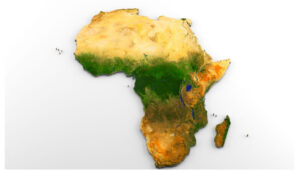AU’s G20 membership: Implications for the African economy


G20 is a premier intergovernmental forum aimed at international economic cooperation that acts as a tool to shape and strengthen global architecture and governance on impactful international economic issues.
With a rotating regional presidency of the forum among its members, G20 was founded in 1999 after the Asian financial crisis of 1997-1998 for Finance Ministers and Central Bank Governors of industrialised and developing economies. Until recently, the members were 19 – Argentina, Australia, Brazil, Canada, China, France, Germany, India, Indonesia, Italy, Japan, Republic of Korea, Mexico, Russia, Saudi Arabia, South Africa, Turkey, United Kingdom, the United States and the European Union. There are invited guests to the forum such as Spain, United Nations, World Bank, NEPAD and ASEAN amongst others.
The African Union first attended G20 Summit in 2010 and seven years later the G20 Compact with Africa (CWA) was launched as the central pillar of the Africa Partnership. This was aimed at improving conditions for sustainable private sector investment and investment in infrastructure in African countries. Twelve African countries have joined this initiative that is tagged as comprehensive, coordinates and country-specific, not forgetting demand-driven.
The pillars for the G20 Africa partnership are screwed on:
- Improving inclusive economic growth and employment.
- Developing quality infrastructure, largely in the energy sector.
- Strengthening the framework for private finance.
- G20 Africa partnership conference.
There has been, over the years, a growing urge to get Africa a permanent seat at G20. For instance, in 2021, Prof Jeffery Sachs called for the G21 and in 2022, the President of Senegal, H.E Macky Sall, who was at the time the AU chairperson, together with the President of Ghana, H.E Akufo-Addo, called for this severally. AU G20 admission was termed as one of the five priority areas for global financial architecture reform by a group of African Finance Ministers at the 2023 IMF and World Bank Spring Meetings.
The lack of African representation in multilateralism has been loud, however, it would be safe to say that the efforts of the Committee of Ten African Ministers of Finance and Central Bank Governors (The C-10) headed by the AfDB President, Dr. Donald Kaberuka, bore fruit. The four areas of concern for the AU in joining G20 may be highlighted as:
- Demonstration of political will and immediate action; debt restructuring; quick delivery on existing commitments that is key to donors’ credibility; ensuring essential public investment programmes in health, education, nutrition and sanitation; supporting social safety nets.
- Providing additional resources available to the IMF and easing access while increasing investment in infrastructure; agreeing on an early review of capital adequacy of the African Development Bank; injecting new resources for specialized facilities.
- Increase policy space and flexibility and reduce conditionality; review debt sustainability criteria and speed up aid delivery.
- Increase transparency, accountability, and equitable representation.
Africa boasting of a natural resource endowment at US $ 193 trillion, home to 30% of the world’s mineral reserves, 8% of the world’s natural gas, 12% of the world’s oil reserves and so much more is a clear indication of the value addition to the G20. Africa is ranked as the 8th largest economy in the world after the advent of the AfCFTA targeting stability in trade. This partnership will help build more resilient economies across Africa as already demonstrated:
- H.E Xi Jinping, China’s President, launched programmes on supporting Africa’s industrialisation, agricultural modernisation and talent development during the China-Africa High Level Dialogue
- USA and Japan to partner with Africa in the development of electric vehicle batteries with adequate provisions on recycling for environmental sustainability.
Evidently, this will politically benefit countries in their bilateral engagement with African countries and the AU. The European Union being a member of the G20 already sets precedent, despite difference in policy and decision-making powers, they serve the same purpose of integration and governance. It is also projected that this partnership will accelerate the independence of the AU.
While there are questions regarding the shift from individual membership to block integration among African countries, it’s essential to recognize that Africa has initiatives that emphasize block partnerships, such as the AfCFTA. Therefore, this can be perceived as a step in the right direction. South Africa was a member before the AU joined and representing Africa was a heavy load on SA’s shoulders.
It is important to note that with this enticing partnership, investments must follow the evidenced growth trajectory of Africa and even in the era of artificial intelligence, demography is a key determinant of destiny.
Summarily, we can capture Africa’s challenges as increasing private investment towards creating jobs, closing the infrastructure gap and moving up the value chain. This partnership may benefit African countries as it secures comprehensive and tailor-made approach to Africa’s challenges, encourages domestics and foreign private investors and it may simply help draw attention to each country’s investment framework.
If we do not approach the problems in Africa with a common front and a common purpose, we shall be haggling and wrangling among ourselves until we are colonized again and become the tools of a far greater colonialism than we suffered hitherto. – Kwame Nkrumah, Former President of Ghana

